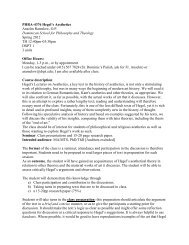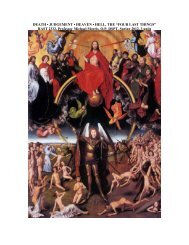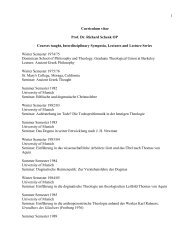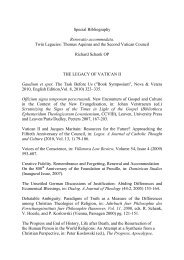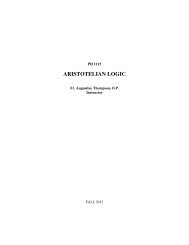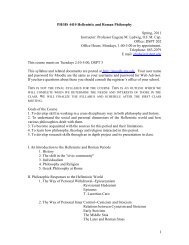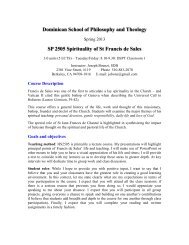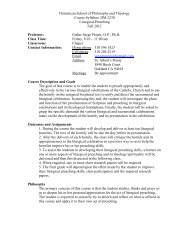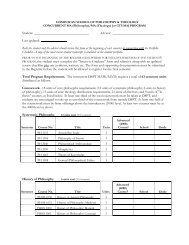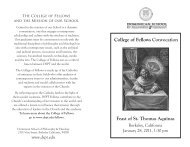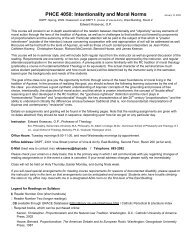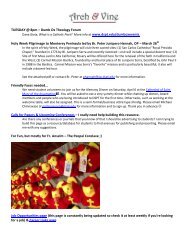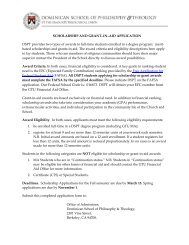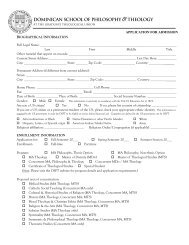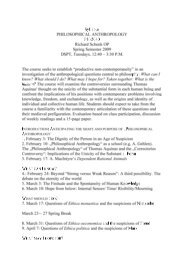READINGS for HS 4476 MEDIEVAL HERETICS AND INQUISITORS
READINGS for HS 4476 MEDIEVAL HERETICS AND INQUISITORS
READINGS for HS 4476 MEDIEVAL HERETICS AND INQUISITORS
You also want an ePaper? Increase the reach of your titles
YUMPU automatically turns print PDFs into web optimized ePapers that Google loves.
THE INQUISITION<br />
Documents translated by the Instructor<br />
This week we shall examine a series of Documents concerning the ecclesiastical tribunals<br />
that investigated and punished heresy. Be<strong>for</strong>e the establishment of papal inquisitors in 1232, the<br />
investigation of heresy was left up to local bishops. Their failure to prevent heresy (especially<br />
Catharism) led Pope Gregory IX to appoint Franciscan and Dominican Friars as extraordinary<br />
judges. Initially they followed the legal procedures of Roman-Canon Law as had the bishops' judges.<br />
Later, as they found these inadequate, they were modified, reducing the rights of the defendants.<br />
Even after the papal initiative in fighting heresy, inquisitors received individual mandates from the<br />
pope; there was no international "Inquisition," only many local "inquisitions." We use the singular<br />
<strong>for</strong>m of the word only <strong>for</strong> convenience. 1<br />
Along with the ecclesiastical tribunals, the State worked to end heresy. We shall thus also<br />
look at documents important <strong>for</strong> showing the development of the understanding and punishment of<br />
heresy as a civil crime.<br />
1. The Development of Canonical Procedure<br />
This document represents the way in which both secular and ecclesiastical tribunals would<br />
have conducted cases in the early period of the inquisition, that is, be<strong>for</strong>e the modifications in<br />
procedure introduced by Alexander IV in 1254. As you read this, consider why inquisitors would<br />
have eventually requested modifications, in particular, the right to employ torture--in accord with<br />
the Roman Law.<br />
V. Concerning Proofs<br />
Romano-Canonical Procedure from<br />
Tancred of Bologna (1209-1215)<br />
We said in the previous section that the law is when a person who is legally interrogated<br />
confesses . . . We will now see what the law is when the accused denies what the accuser asserts. In<br />
that case the burden of proof is on the accuser, since the burden of proof belongs to the one who<br />
asserts, not to the one who denies. So we will now consider proofs, asking what a proof is, who must<br />
prove and to whom, what must be proven and when, and what kinds of proof there are.<br />
1 There would later be a centralized organization to suppress heresy, the Roman Inquisition<br />
(founded 1542), which operated in the Papal States, and another, the Spanish Inquisition (1479-<br />
1820) in Spain, but these entities have no direct connection with the various medieval<br />
"inquisitions."<br />
18



